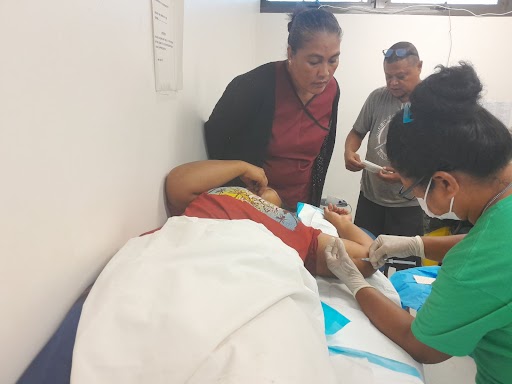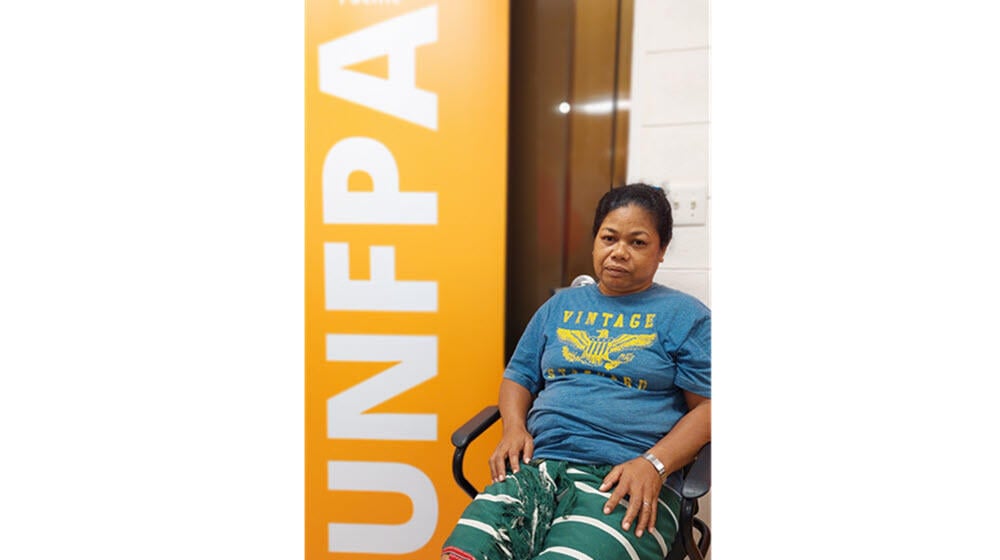YAP STATE, the Federated States of Micronesia - “The family planning training has equipped me with practical skills needed at my job. For example, I have learned how to insert contraceptive implants like Jadelle and intrauterine contraceptive devices (IUDs),” said Marilyn Werelmog, who works at a health center in Yap, one of the four states that compose the Federated States of Micronesia (FSM) in the North Pacific.
This was a part of the series of family planning training that UNFPA Pacific has started providing in FSM under the Transformative Agenda programme funded by the Australian Government's Department of Foreign Affairs and Trade. The training that the Health Worker Marilyn participated in, along with 14 other healthcare providers from Yap, was the first one conducted in the westernmost state with around 11,000 population.
According to the available data, 44 per cent of women in FSM have the so-called “unmet need for family planning” implying they want to delay pregnancy or do not want to get pregnant now, but they are not using any contraception.
To address this critical need, UNFPA has stepped in by training midwives, nurses, and doctors in FSM to deliver high-quality family planning counseling and services for women, adolescents, and people with disabilities. To date, 34 healthcare workers from 13 public health facilities across the country have received the UNFPA training.
“I found this type of family planning training to be very important for health workers like me who are serving local communities in a remote outer island,” Marilyn stresses, “because the training also helps defuse the myth that both the providers and the beneficiaries of the services may carry about family planning, for instance, a misunderstanding that contraceptive methods cause infertility or birth defects. These misconceptions actually prevent some people from adopting family planning.”

FSM is one of the new member states added to the programme countries of UNFPA’s Transformative Agenda in its Phase II that started last year. By its end in 2027, the TA programme aims to assist FSM with having at least one health worker fully trained to provide youth-friendly and disability-inclusive family planning services in all of the public health facilities in the country, according to Evelyn Adolph, UNFPA Assistant Representative for Micronesia Multi-Country Office in Pohnpei, who accompanied the family planning training in Yap State.


